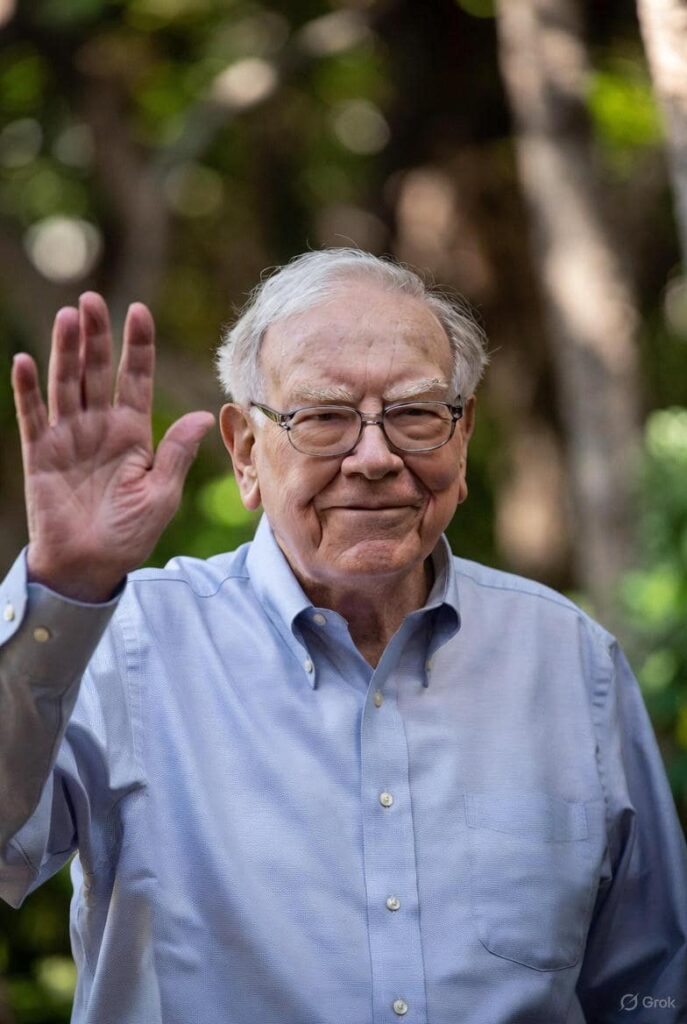
On November 10, 2025, Berkshire Hathaway released an 8-page document that instantly became one of the most important shareholder letters in the history of American capitalism.
This is not just another annual report update. This is Warren Buffett’s official retirement announcement at age 95, his last direct message to shareholders, and the clearest blueprint yet for the future of his $1 trillion empire and his remaining $150+ billion fortune.
In one sweeping move, Buffett converted 1,800 Class A shares into 2.7 million Class B shares and donated them immediately — the largest single-day charitable gift in Berkshire history:
- 1.5 million B shares → The Susan Thompson Buffett Foundation
- 400,000 B shares each → The Sherwood Foundation, Howard G. Buffett Foundation, and NoVo Foundation
That’s over $13 billion at today’s prices, delivered the same day.
The End of an Era
In his trademark folksy style, Buffett declares: “I will no longer be writing Berkshire’s annual report or talking endlessly at the annual meeting. As the British would say, I’m ‘going quiet.’ Sort of.”
He confirms what insiders have known for years: Greg Abel takes over as CEO at year-end 2025. Buffett’s praise is unequivocal: “I can’t think of a CEO, a management consultant, an academic, a member of government — you name it — that I would select over Greg to handle your savings and mine.”
The Most Personal Letter Ever Written by a Billionaire
Unlike any previous letter, this one is deeply autobiographical. Buffett recounts:
- Nearly dying at age 8 from a burst appendix in 1938
- Fingerprinting Catholic nuns during recovery (and fantasizing about helping J. Edgar Hoover catch a “criminal nun”)
- Missing Charlie Munger by a whisker — Munger worked at Buffett’s grandfather’s grocery store in 1940; Warren took the same $2-for-10-hours job in 1941
- Living one block away from Munger, six blocks from future Berkshire legends, and across the street from Coca-Cola president Don Keough — all without knowing it
His conclusion? “Can it be that there is some magic ingredient in Omaha’s water?”
Lady Luck, Father Time, and the Acceleration of Giving
At 95, Buffett is blunt about aging: “Father Time, to the contrary, now finds me more interesting as I age. And he is undefeated.”
He acknowledges his children (Susie, Howie, and Peter — ages 72, 70, and 67) are entering the zone where “the honeymoon period will not last forever.” To avoid the chaos of post-mortem estate battles, he is accelerating lifetime gifts at warp speed while keeping enough A shares to ease the transition to Greg Abel.
Most powerful line on wealth and luck:
“I was born in 1930 healthy, reasonably intelligent, white, male and in America. Wow! Thank you, Lady Luck.”
Warnings to Corporate America
Buffett eviscerates CEO pay inflation, dementia in the C-suite, and dynastic wealth. Highlights:
- CEO pay-disclosure rules “produced envy, not moderation”
- Boards must fire CEOs who develop dementia — he and Munger failed to act several times
- Berkshire will never tolerate “look-at-me rich” or dynastic CEOs
Why This Document Will Be Studied for Centuries
This letter is the capitalist equivalent of a papal encyclical. It combines:
- A formal leadership handoff after 60 years
- The largest ongoing wealth transfer in history
- A philosophical treatise on luck, aging, kindness, and corporate governance
- A love letter to Omaha and middle America
- Buffett’s final ethical will: “Decide what you would like your obituary to say and live the life to deserve it.”
Business schools will teach this. Biographers will mine it. Investors will quote it for decades.
Download the full PDF here: Warren Buffett Thanksgiving Letter 2025 (PDF)
As Buffett signs off:
“I wish all who read this a very happy Thanksgiving. Yes, even the jerks; it’s never too late to change.”
The Oracle has spoken — one last time. And the world is listening.
